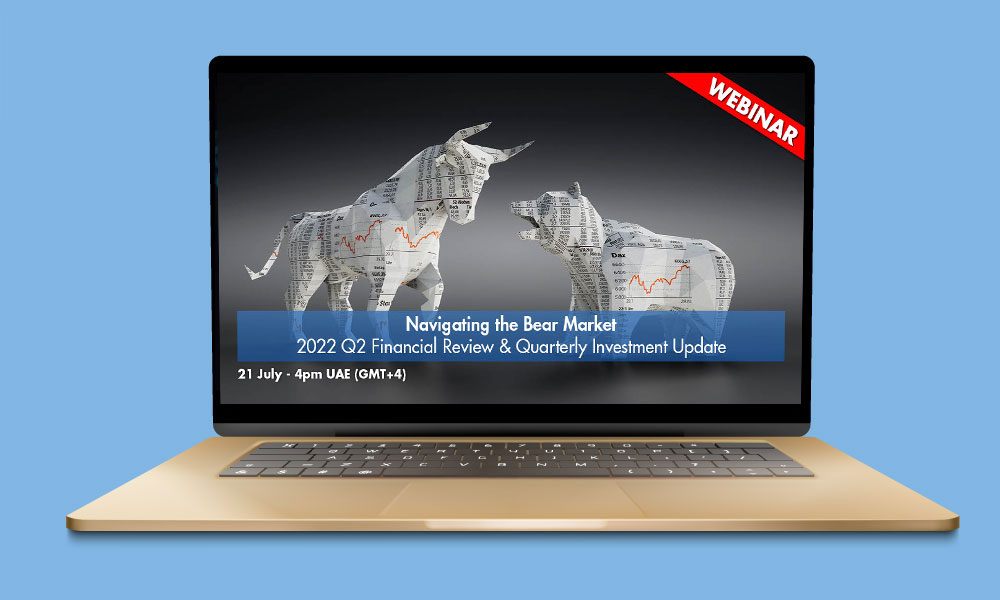We are in a bear market – and when the H1Q2 economic figures are released next month, they will almost certainly confirm we are in a global recession. As they always do, the markets are frontrunning the official data, which is why we have entered bear territory.
The macro outlook
The macro outlook is not favourable. This will come as no surprise; the media has subjected us to a daily barrage of bad news. Pandemic aftermath, the war in Ukraine, rocketing energy costs, food shortages and global supply chain problems have pushed the world into a recession.
The biggest problem is inflation. In the United States, the annual inflation rate in May was 8.6%, its highest level since 1981. The picture is the same elsewhere; 8.1% in the European Union and 9% in the UK. We have not seen inflation levels this high for a generation, and they are still rising.
Governments recognise that inflation is a systemic economic threat and are raising interest rates. The US Federal Reserve is taking the lead and increased interest rates by 75 basis points this month (0.75%). It was the highest hike since 1994 and above prior indications. Interest rates increase business costs and reduce consumer demands, and the announcement met with asset sales across the board, resulting in this month’s market falls.
Keep calm & carry on
Bear markets look scary. A sea of red on the tickers and falling prices are always going to unsettle investors, but when it’s combined by daily apocalyptic media coverage, it induces panic selling and drives markets further down. This is the worst thing you can do.
Bear markets don’t last long. Since 1947 there have been 14 bear markets, the longest lasting 1.7 years and the average about eight months. It represents a predictable cycle in the market and investors with a long-term investment horizon should stay calm.
By their very nature, markets move up and down, and the adage that ‘time in the markets is more important than timing the markets’ remains true. Sound investments will retain value and rebound when market conditions change.
Manage your risk
Patiently holding and waiting for the market to turn will work in the long run but is a passive, sub-optimal strategy that exposes investors to additional risk. Having anticipated the economic headwinds over the past few months, we have actively managed clients’ portfolios to reduce exposure to downside risk.
Stay informed, get in touch
If you would like to learn more about how we actively manage risk and portfolios, please join our webinar, Navigating the Bear Market, on July 21.
We have encouraged and conducted many reviews over the past couple of months, and clients report a greater peace of mind that comes from being better informed. So, if you are concerned about falling markets and their effect on your investments, please do not hesitate to book a call.
Senior Investment Strategist
Michele Carby Practice – Holborn Assets














